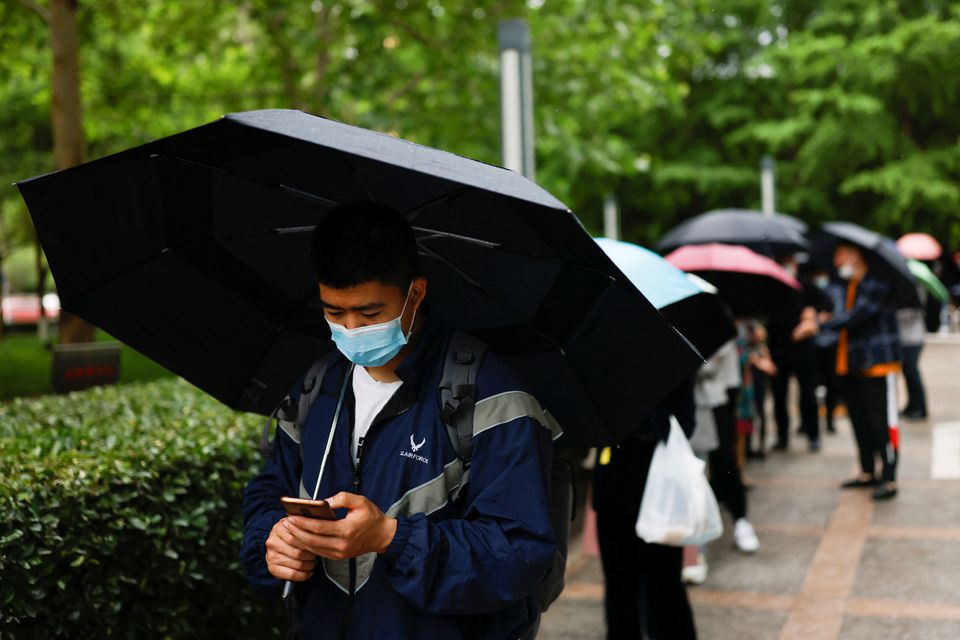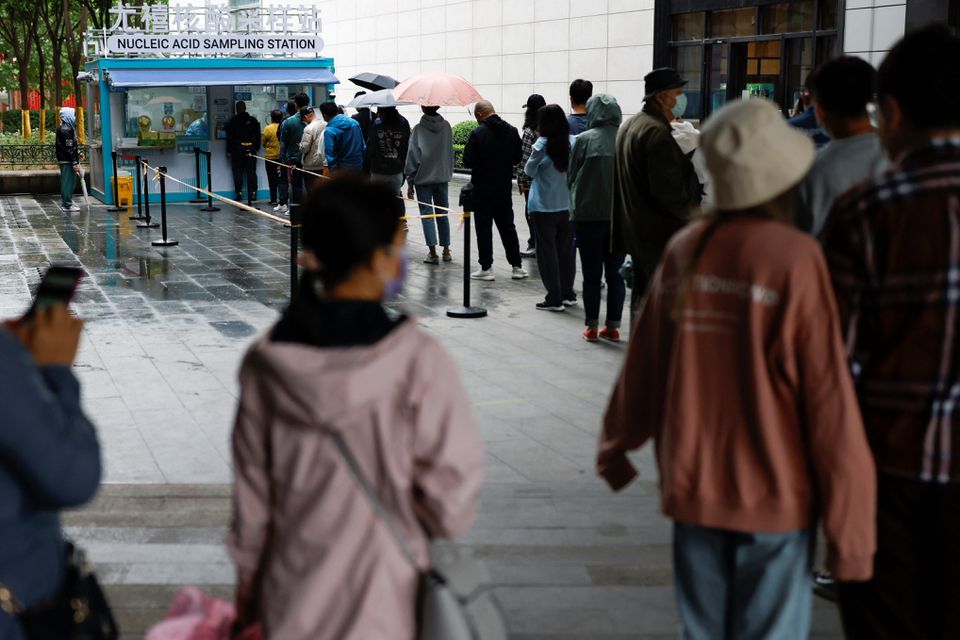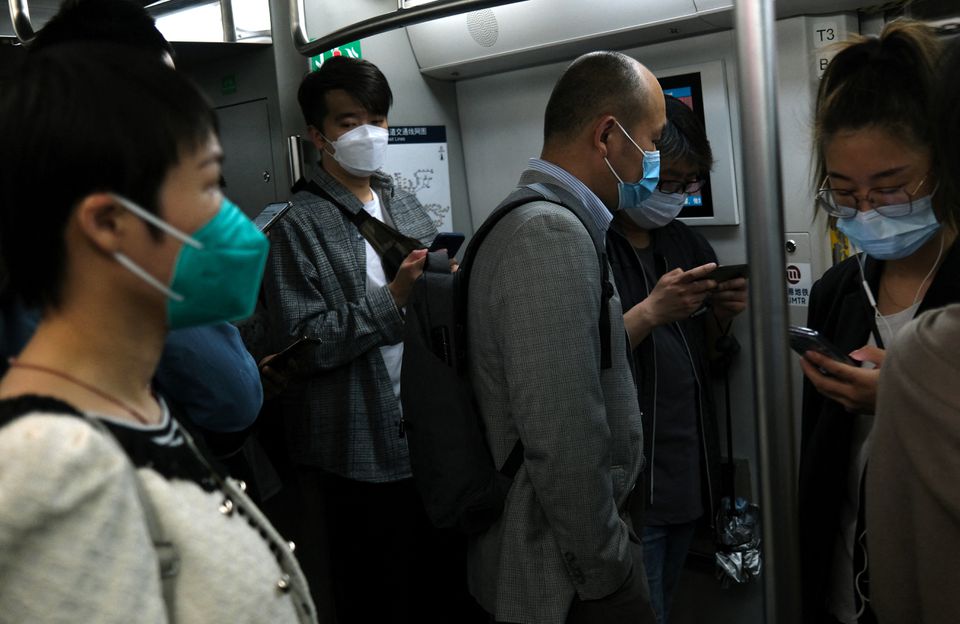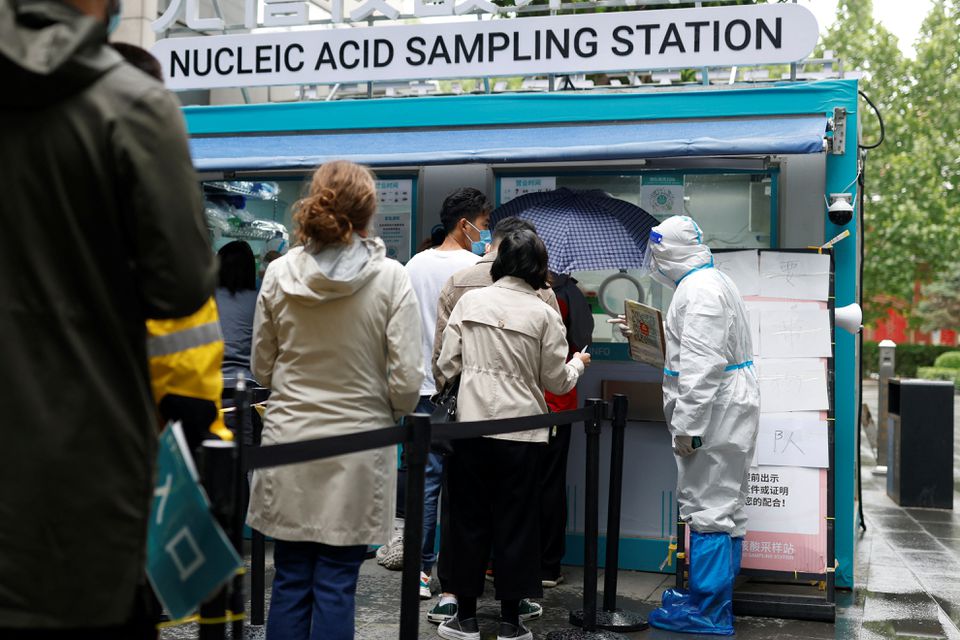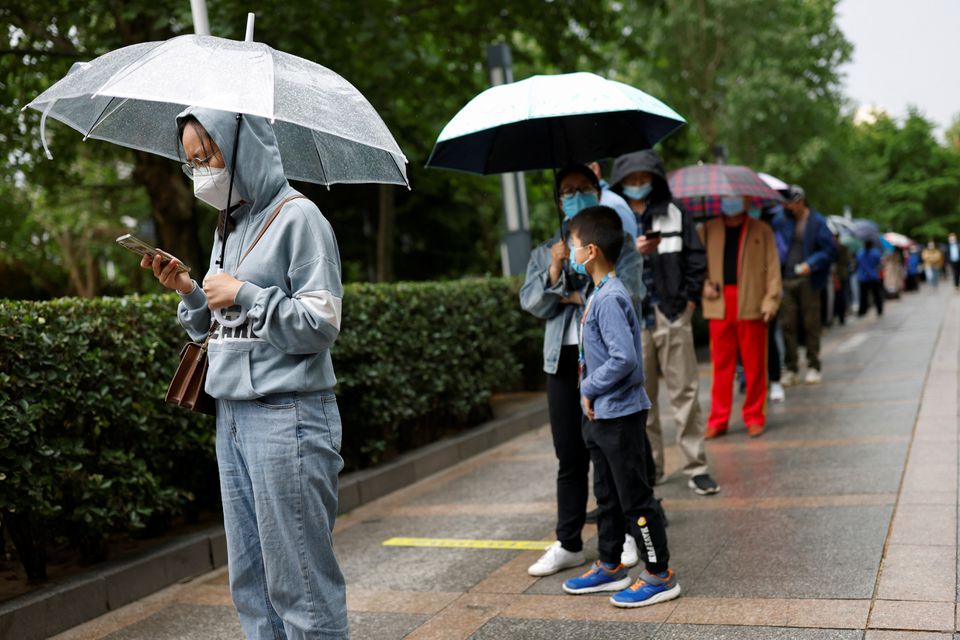INTERNATIONAL: Residents of Beijing fretted on Friday over dozens of new COVID-19 cases reported daily and over the possibility of more restrictions on movements as China's leaders threatened action against critics of their zero-COVID policy.
Incurring a heavy economic cost and facing rare public criticism on its tightly controlled internet, China is increasingly out of step with the rest of the world where COVID restrictions are being abandoned and vaccines relied on to protect people.
Internationally, industry organisations have complained that China's COVID curbs have global economic reverberations. At home, the population worries about painful, long-term restrictions.
The capital is racing to avoid an explosion in cases like the one that forced the commercial hub of Shanghai into an almost complete lockdown for more than a month, taking a significant financial and psychological toll on its residents.
"We will try to cooperate," said 42-year-old Beijing finance worker Hu, giving only her surname.
"But I also hope that the government can introduce some policies that will not affect the overall life of citizens. After all, we all have mortgages and car loans."
Shi Wei, a retiree in the capital, said people around him seemed "easily irritable".
"When the virus can change people’s way of life at any time, people are more susceptible to mood swings."
After a meeting of the highest decision-making body, the Standing Committee of the Communist Party's politburo, state media reported late on Thursday that China would fight any comment or action that distorted, doubted or repudiated its COVID policy.
Relaxing COVID controls, which were being imposed in dozens of cities across the world's second-largest economy and affecting hundreds of millions of people, would lead to large-scale infections, it warned.
On Friday, the Communist Party's official People's Daily newspaper hit out in an editorial against accusations China's COVID policy was disrupting global economy and trade.
"Some U.S. politicians have frequently attacked and smeared China's epidemic prevention and control measures and tried to throw the blame on China for the so-called disruption of global supply chains," it said without identifying anyone.
China was putting "life first" and that although pressure on its economy has increased, it could overcome difficulties, it said.
China's yuan weakened to its lowest level against the dollar since November 2020, while stocks (.CSI300), (.SSEC) also fell sharply.
"The economy was barely mentioned," Nomura analysts said in a note, referring to Thursday's politburo meeting.
The government and central bank have promised more policy support for the economy.
Shanghai Vice-mayor Wu Qing said on Friday "the epidemic has come under effective control" but warned of risks of a rebound and promised the city would not deviate from the zero-COVID strategy, which involves mass testing, mandatory quarantine and sweeping lockdowns.
"We cannot relax, we cannot slack off: persistence is victory," he said.
Despite the announcement that the outbreak was under control, most of the city's 25 million people are unable to leave their housing compounds or are only allowed out briefly.
Many residents grumble about different community officials applying rules in different ways, with some people in "prevention zones" still unable to get out even though their areas have reported no positive cases for weeks.
One large, central residential complex announced on Friday that it was relaxing curbs within the compound and scaling back the number of volunteers helping to deliver food. But its residents could still not get out through its locked gates.
The Asian Games, scheduled to take place in September in Hangzhou, southwest of Shanghai, have been postponed until 2023, because of COVID.
Beijing hosted the Winter Olympics under tight COVID restrictions this year and most sporting events have returned to normal around the world.
Beijing has reported dozens of new cases a day for about two weeks since its outbreak emerged, faring better than Shanghai was on the 14th day of its outbreak.
Isolated lockdowns of residential buildings and closures of restaurants and other venues remained in place in the capital. But after three consecutive days of mandatory mass testing, Beijing residents were given a break on Friday.
Weekly COVID tests would, however, be needed to get into office buildings and public venues and take subways or buses, the state-backed Beijing Daily reported.
Glitches in a system handling millions of people can be a frustration. Some residents have complained they never got their test results while others saw their mobile health apps block them from various places even though they had taken tests.
"I couldn't enter the office building ... even though I tested negative within 24 hours. Isn't that insane?" said a resident surnamed Wang.
Goldman Sachs analysts said regular testing could be a compromise to allow cities to identify and isolate cases quickly with much lower costs than city-wide lockdowns.
It "would not be a panacea, but would help limit disruption to a large part of China’s manufacturing and overall economic activity for a protracted period", they said.
